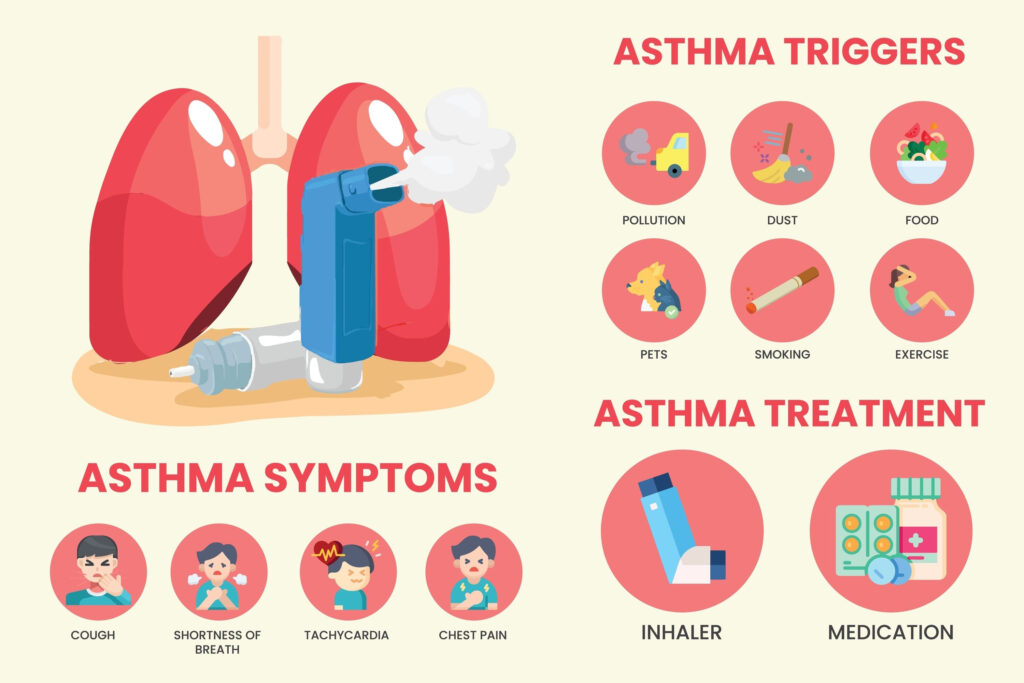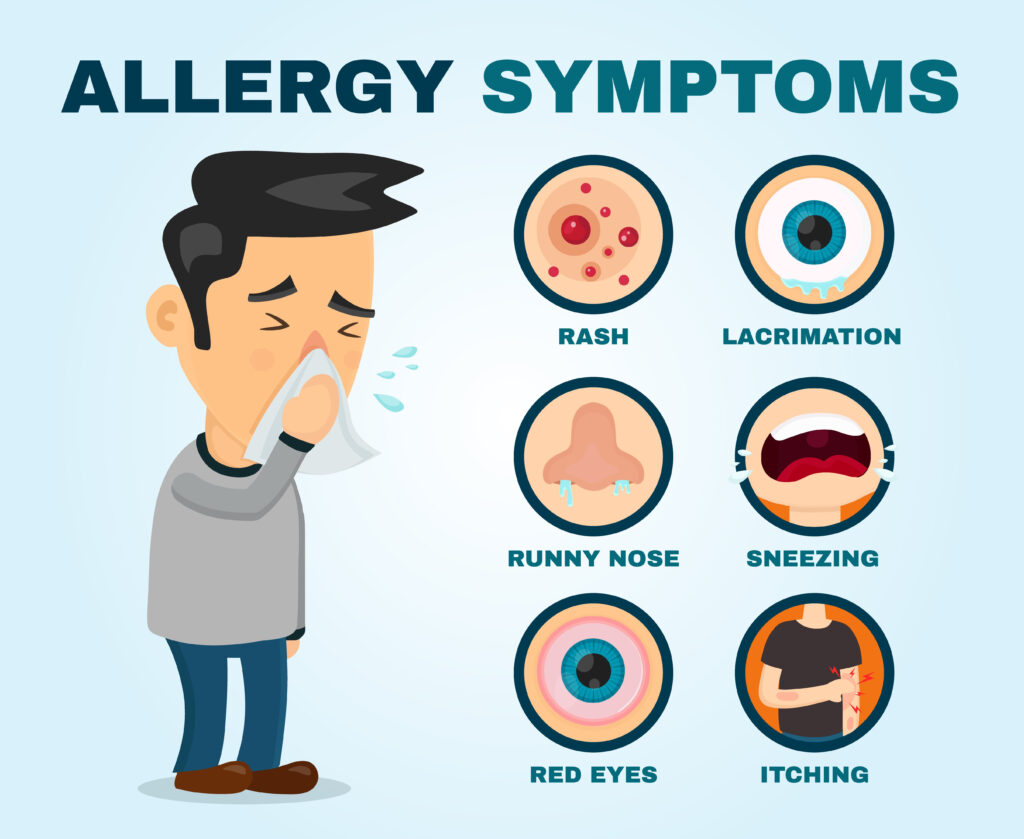Asthma
If you have asthma, having good control of your symptoms can have a significant impact on your quality of life. There are many different types of asthma, and different people with asthma will have different “triggers” that may set off their asthma symptoms. These triggers may include illnesses such as upper respiratory tract infections; irritants such as smoke, scents like perfume/cologne, or pollution; cold air or weather changes; exercise; and allergies.

Allergies
Allergic rhinitis, also known as “allergies” or “hay fever,” can be a trigger for people with asthma. Allergic rhinitis may cause symptoms such as watery, itchy, red eyes, runny or stuffy nose, sneezing, or postnasal drainage. Exposure to environmental allergens, such as trees, grasses, weeds, pets, or molds, can set off a complex response in your body. If you are allergic, your immune system responds to specific allergens by releasing immunoglobulin E (IgE). When IgE is bound to mast cells and basophils in your body and binds to their specific allergens, many different mediators (components in your body that communicate signals to other cells in the body) are released.

Asthma + Allergies = Allergic Asthma
In allergic asthma, this is what causes swelling and inflammation in your airway. This inflammation can cause coughing, wheezing (whistling sound in your chest), shortness of breath or chest tightness, difficulty breathing with exercise, or waking up at night with breathing symptoms. Knowing what you are allergic to, if you have allergic asthma can help you avoid exposures to your allergens and optimize your treatment. Having good control of your allergies can help decrease allergic asthma symptoms.
We would be happy to help you determine your asthma triggers and assess if you have allergies that are contributing to your asthma. If you are scheduled to do allergy testing, you should be off antihistamines for 7 days, and montelukast for 24 hours. If you are already on medication for your asthma, you should continue your asthma controller medications when you come in for allergy testing. We look forward to seeing you at one of our offices soon.
Category: Uncategorized



